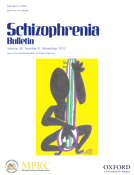
JAMA Psychiatry
Scope & Guideline
Bridging Research and Real-World Impact in Psychiatry
Introduction
Aims and Scopes
- Clinical Research and Trials:
The journal publishes randomized clinical trials and observational studies that evaluate the efficacy and safety of various therapeutic interventions for mental health disorders. - Epidemiological Studies:
Research assessing the prevalence, incidence, and risk factors associated with mental disorders, contributing to a better understanding of public health implications. - Transdiagnostic Approaches:
A focus on the interrelatedness of psychiatric conditions and the development of treatment approaches that transcend traditional diagnostic boundaries. - Biological and Genetic Research:
Studies exploring the genetic, neurobiological, and physiological underpinnings of mental disorders, including the role of biomarkers in diagnosis and treatment. - Social Determinants of Mental Health:
Research addressing the impact of socioeconomic, cultural, and environmental factors on mental health outcomes and treatment access. - Innovative Treatment Modalities:
Exploration of emerging treatments, including psychedelics, telehealth, and digital interventions, aimed at enhancing psychiatric care. - Health Policy and Systematic Reviews:
Articles assessing mental health policies, healthcare delivery models, and systematic reviews that synthesize evidence to guide clinical practice.
Trending and Emerging
- Digital Mental Health Interventions:
There is a notable increase in studies evaluating the effectiveness of digital platforms for therapy, including teletherapy and mobile health applications, especially following the COVID-19 pandemic. - Psychedelic-Assisted Therapies:
Research into the therapeutic potential of psychedelics for various mental health disorders has surged, marking a significant shift in treatment paradigms. - Intersectionality in Mental Health:
Emerging studies are increasingly addressing the intersection of race, gender, and socioeconomic status in mental health outcomes and treatment access. - Neurobiological and Genetic Insights:
A growing emphasis on the genetic and neurobiological underpinnings of mental disorders is evident, with studies linking genetic markers to treatment responses and disorder trajectories. - Focus on Youth Mental Health:
Research targeting mental health issues in youth, particularly related to the impacts of social media, adverse childhood experiences, and the COVID-19 pandemic, is gaining prominence. - Community and Social Support Systems:
An emphasis on the role of community support and social determinants in mental health outcomes reflects a broader understanding of mental health as influenced by external factors.
Declining or Waning
- Traditional Psychotherapy Models:
Research specifically focused on traditional psychotherapy methods, such as psychoanalysis, has become less frequent as interest shifts toward more integrative and evidence-based treatments. - Single-Disease Focus:
There has been a gradual decrease in studies that examine mental health disorders in isolation, with a growing trend towards understanding comorbidities and transdiagnostic approaches. - Longitudinal Studies of Adult Populations:
While still important, the frequency of longitudinal studies focusing solely on adult populations without considering youth or geriatric perspectives has declined. - Basic Neuroscience Research:
There is a shift away from purely basic neuroscience studies toward applied research that directly informs clinical practice and treatment. - Risk Factors Linked to Substance Use Disorders:
Research specifically concentrating on the risk factors for substance use disorders has waned, possibly due to the increased focus on integrated treatment approaches that address both mental health and substance use.
Similar Journals

Rivista di Psichiatria
Fostering Collaboration in Psychiatric ScienceRivista di Psichiatria, published by PENSIERO SCIENTIFICO EDITORE, stands as a significant contributor to the field of Psychiatry and Mental Health since its inception in 1975. With an ISSN of 0035-6484 and an E-ISSN of 2038-2502, this esteemed journal offers a platform for rigorous academic discourse and cutting-edge research, helping to shape contemporary psychiatric practices and theories. Currently holding a Q2 designation in Psychiatry and Mental Health based on the 2023 category quartiles, and ranking #197 out of 567 in Scopus, it reflects a commendable 65th percentile among its peers. The journal welcomes contributions that encompass a broad range of topics related to mental health, encouraging contributions from a multidisciplinary approach, which aids in its goal of advancing the understanding and application of psychiatric science. While it is a traditional journal without Open Access options, access to its valuable content can support researchers, clinicians, and students in their pursuit of knowledge and innovation within the field. Situated in Rome, Italy, at VIA SAN GIOVANNI VALDARNO 8, ROME 00138, the journal continues to enhance its rich legacy, promoting the exchange of ideas and fostering collaboration amongst practitioners and scholars alike.

Australasian Psychiatry
Empowering clinicians and researchers for a brighter mental health future.Australasian Psychiatry is a distinguished peer-reviewed journal published by SAGE Publications Ltd, focusing on the dynamic fields of Psychiatry and Mental Health. With a commendable Q3 ranking in the 2023 category quartiles, it serves as a vital resource for researchers, clinicians, and students alike, contributing to the understanding of mental health issues and advancements in psychiatric practice. Established in 1967, the journal has consistently disseminated original research, clinical reviews, and evidence-based practices, fostering a platform for discussing the contemporary challenges faced by mental health professionals. While operating from the heart of the United Kingdom, it aims to bridge regional insights with global trends, celebrating the diversity of thought in psychiatric discourse. Access to its rich content is through institutional subscriptions, ensuring that valuable research is within reach of dedicated scholars and mental health advocates. As the field evolves, Australasian Psychiatry remains committed to advancing knowledge and practice in mental health, positioning itself as an indispensable part of the academic landscape.

SCHIZOPHRENIA BULLETIN
Illuminating the path to improved mental health.SCHIZOPHRENIA BULLETIN, published by Oxford University Press, stands as a leading journal in the field of psychiatry and mental health, particularly focusing on the complexities of schizophrenia. Established in 1973, this esteemed journal covers a wide spectrum of research areas, including clinical findings, neurobiology, epidemiology, and treatment approaches, making it indispensable for researchers and practitioners alike. With its current status in the Q1 category of the psychiatry and mental health disciplines, and a remarkable Scopus rank of #34 out of 567, the journal enjoys a strong impact factor, emphasizing its contribution to advancing knowledge in mental health. Although it operates on a subscription model, the significance of the journal in disseminating groundbreaking research makes it a vital resource for those committed to improving outcomes in schizophrenia. Through its rigorous peer-review process and commitment to high-quality scientific communication, SCHIZOPHRENIA BULLETIN continues to be at the forefront of psychiatric research and discourse.

NORDIC JOURNAL OF PSYCHIATRY
Pioneering insights into mental health for Nordic populations.NORDIC JOURNAL OF PSYCHIATRY is a pivotal publication in the field of psychiatry and mental health, dedicated to advancing knowledge and fostering dialogue among researchers, clinicians, and students. Published by Taylor & Francis Ltd, this esteemed journal, with an ISSN of 0803-9488 and E-ISSN 1502-4725, serves as a platform for innovative research and critical reviews that address crucial mental health issues affecting Nordic populations and beyond. Its impact is underscored by a notable Q2 ranking in the Psychiatry and Mental Health category for 2023, along with a respectable position within the Scopus ranking at #268 out of 567. The journal has been a reliable source of scientific inquiry since its inception in 1947, and it aims to facilitate significant advancements in the understanding and treatment of psychiatric disorders. By providing access to high-quality research without open access options, NORDIC JOURNAL OF PSYCHIATRY remains a must-read for those dedicated to progressing mental health science in a global context.

JOURNAL OF NEUROLOGY
Exploring the depths of clinical and fundamental neurology.The Journal of Neurology, published by Springer Heidelberg, stands as a distinguished platform within the realm of neurology, encompassing both fundamental and clinical aspects of the field. With an impressive impact factor and notable rankings—43rd out of 400 in clinical neurology and 22nd out of 192 in neuroscience—this journal consistently showcases high-quality research and groundbreaking studies. Established in 1974, it has evolved over nearly half a century to adapt to the latest advancements, maintaining its Q1 quartile ranking for both neurology and clinical neurology in 2023. With an extensive scope that includes original research, reviews, and case reports, the journal fosters knowledge dissemination and engages a global audience of researchers, clinicians, and students. Although it does not currently offer open access options, its rigorous peer-reviewed publication process ensures that only the most impactful studies contribute to the understanding and advancement of neurological sciences.

Journal of Psychiatric Practice
Bridging the gap between research and clinical practice in mental health.Journal of Psychiatric Practice, published by Lippincott Williams & Wilkins, is a premier journal dedicated to advancing the field of psychiatry and mental health. With a focus on evidence-based clinical practice, the journal has been a respected resource since its inception, providing a platform for a wide range of articles, including original research, reviews, and case reports from 1997 to the present. As of 2023, it holds a Q3 ranking in Psychiatry and Mental Health, reflecting its influential role in the academic community. The Journal is aimed at researchers, mental health professionals, and students, promoting the dissemination of essential knowledge and innovative practices. Subscribers benefit from the latest findings and discussions in the field while contributing to the ongoing advancements in psychiatric care. Although not classified as open access, the journal ensures wide accessibility to its valuable content, further solidifying its commitment to the mental health discipline.

Translational Psychiatry
Connecting neuroscience and clinical practice for transformative outcomes.Translational Psychiatry, an esteemed journal published by SpringerNature, is at the forefront of research in the fields of biological psychiatry, neuroscience, and mental health. With an impressive Q1 category ranking in Biological Psychiatry, Cellular and Molecular Neuroscience, and Psychiatry and Mental Health, the journal fosters high-quality scholarly work that informs clinical practices and guides future research directions. Since its inception in 2011, Translational Psychiatry has embraced the Open Access model, ensuring that groundbreaking findings are easily accessible to all, promoting collaboration and innovation within the global scientific community. With a solid ranking in Scopus—particularly at #33 out of 567 in Psychiatry and Mental Health and #6 out of 51 in Biological Psychiatry—this journal plays a critical role in advancing our understanding of mental health disorders, bridging the gap between bench science and clinical application. As it continues evolving through its converged years from 2011 to 2024, Translational Psychiatry remains an essential resource for researchers, healthcare professionals, and students dedicated to improving mental health outcomes.

WORLD JOURNAL OF BIOLOGICAL PSYCHIATRY
Bridging Biological Insights and Psychiatric Care.WORLD JOURNAL OF BIOLOGICAL PSYCHIATRY, a premier academic journal published by TAYLOR & FRANCIS LTD, stands at the forefront of interdisciplinary research in the fields of Biological Psychiatry, Psychiatry, and Mental Health. Based in the United Kingdom, this esteemed journal (ISSN: 1562-2975; E-ISSN: 1814-1412) has become increasingly influential since its inception in 2000, with a remarkable impact factor that reflects its high-quality research contributions. The journal is consistently ranked in the Q1 and Q2 categories across various relevant indices, demonstrating its reputation for excellence within the academic community. With Scopus rankings placing it in the top 20th percentile for Psychiatry and Mental Health, the WORLD JOURNAL OF BIOLOGICAL PSYCHIATRY serves as a vital resource for researchers, professionals, and students seeking to further their understanding of the intricate relationship between biological processes and psychiatric phenomena. Despite being a traditional access journal, it possesses a robust scope that encompasses groundbreaking studies, reviews, and advancements in the understanding of mental health disorders, underlining its importance as a key reference in the advancement of psychiatric science and therapeutic practices.

BMC Psychiatry
Transforming the landscape of mental health through open access.BMC Psychiatry is a leading open-access journal published by BMC, dedicated to advancing the field of psychiatry and mental health. With its E-ISSN 1471-244X, the journal has been at the forefront of disseminating high-quality research since its inception in 2001, and it proudly maintains a Q1 ranking among psychiatry and mental health journals, reflecting its significant impact and relevance within the research community. Based in the United Kingdom, BMC Psychiatry boasts a commendable Scopus ranking of #158 out of 567 in the psychiatry and mental health category, placing it in the 72nd percentile. The journal serves as a vital platform for scholars, clinicians, and students alike, providing them with access to groundbreaking studies, innovative methodologies, and emerging trends in mental health. By fostering a collaborative environment, BMC Psychiatry not only enriches the academic landscape but also contributes to evidence-based practice and policy in mental health care.

Middle East Current Psychiatry-MECPsych
Exploring the intersection of culture and psychiatry.Middle East Current Psychiatry (MECPsych), published by SpringerNature, is a prominent open-access journal dedicated to advancing the field of psychiatry and mental health in the Middle East and beyond. Since its establishment in 2011, MECPsych has aimed to disseminate high-quality research, reviews, and reports that capture recent developments in psychiatric science, clinical practice, and public health considerations in mental well-being. With an impact factor reflective of its growing influence and classified in the Q3 quartile for Psychiatry and Mental Health, the journal offers invaluable insights backed by rigorous peer review processes. Operating under an open access model since 2019, MECPsych ensures that its articles are freely accessible to a global readership, enhancing the visibility and application of research findings. As part of its ongoing commitment to enriching understanding in the field, MECPsych also encourages submissions that explore the unique cultural, societal, and economic factors influencing mental health across the region. This approach not only supports researchers, professionals, and students in their pursuit of knowledge but also fosters a collaborative dialogue among mental health stakeholders in the Middle East and around the world.